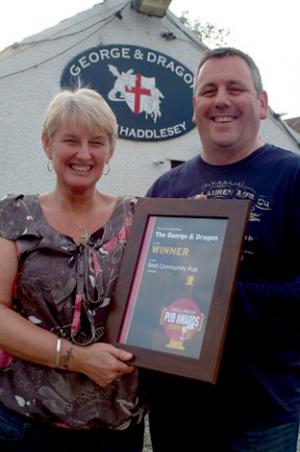When we started this project we asked ourselves a lot of questions. What makes us happy? What makes other people happy? Where is the happiest place in the world? Mostly questions about happiness.
Then we answered some questions. We joined in the public consultation process for the Office of National Statistics 'Measuring National Well-Being' survey. One of the questions was:
Would you like the results presented as
a) A large number of signifiers?
b) A small number of signifiers?
c) A single signifier?
We tried to imagine what this single signifier number would be and if it would mean anything. Douglas Adam's famous answer to the meaning of life, the universe and everything in Hitchiker's Guide To the Galaxy occurred to us. Knowing the answer is 42 is only of use if you know what the question is.
Then we went off and asked some questions to people on the internet. I talked to my friend Sam (an admirably enthusiastic maths and science geek/ student) about means, modes and medians. We talked about bad maths, bad presentation. We talked about misleading ways of data presentation. So, how do we present our findings?
The first question we asked was an easy one to get people into the swing of things:
Where are you from?
By triangulating the coordinates of people who have responded so far we have found out that people are, on average (though in actuality, nobody is), from West Haddlesey, North Yorkshire. It's a quaint village on the Selby canal with a used car dealership and a wesleyan chapel. We probably all drink in the George and Dragon, voted best community pub of 2009/10 by The Yorkshire Evening Press.
 |
| Look how happy these prize-winning pub people are! |
How Happy are You (on a scale of 1-100)?
We've been asked before why we're using a scale of 1-100 and not 1-10. We've been telling people that they are too complex to be summed up by something as rudimentary as a scale of 1-10. They seem to like this. Hopefully it makes them happy. How happy? We'll we've worked out a median score of 68.75 and a mean of 67.41. If we'd used a boring old 1-10 scale it would probably be a functional but dull 7. But we didn't. So it's not.
How Rich are You (On a scale of 1-100)?
Asking people how rich they are is apparently a no-no. It's like asking a woman 'How old are you?' or 'Are those your real breasts?' We haven't actually asked how much people have in their purse/ bank account, just how they rank their wealth on a scale of 1-100. Do they think they're doing OK compared to everyone else? Turn's out we're skint. A median of 34, a mean of 30.26. One engineer who responded suggested a formula involving
the sum of my purse and the smile I now have on my face (…+1 multiplied by 9 and taking the square root of this number).
We didn't understand this and are therefore glad that people smarter than us exist so that we can trust them unquestioningly.
What Makes You Happy (Other than Money)?
From our averages it seems that people are more than twice as happy than they are rich (though this is not taking into consideration correlations, there will be graphs soon to point this out though). So something other than money must make us happy. It's just difficult for us to put our finger on. It could be conversation, pink wafer biscuits or the first rule of engineering ( “When in doubt, assume it is zero” ). It probably depends on the situation. Are these things tangible? Are they universal? Why do we have more questions now than when we started?
What’s happening in Greenland That They're Not Telling Us About?
We don't know who they are or why we've accused them of misleading us. We just know that we saw a map where Greenland was grey. Just like North Korea, Libya and Afghanistan. We imagined something must be going on. So did you. Matt from Skeleton Project suggested that the country is trapped in a pre-2008 technological past (This would mean they had never seen an iPad, let alone the slimmer, lighter iPad 2). He also suggested that there are two divergent tribes of Greenlander, one of which (The Classic-Greenlander) takes their names from a list of Norse Gods they found on the internet. Our friend Shaun suggested that it is 10% smaller than it appears on maps (2,144,426 sq km rather than 2,166,086 sq km).
We'd like to thank everyone for their contribution so far. We're going to go away and make some graphs and charts now. If we've not heard from you yet then we'd love to. It will ensure that our graphs and charts are out of date before they're even completed. We like the futility of this.
No comments:
Post a Comment